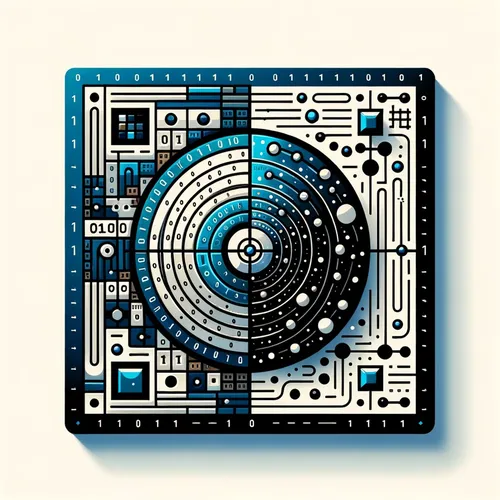Quantum Computing Goes Mainstream: 2025 Breakthroughs Bring QC to the Masses
- Author
- Quiet. Please
- Published
- Tue 28 Jan 2025
- Episode Link
- https://www.spreaker.com/episode/quantum-computing-goes-mainstream-2025-breakthroughs-bring-qc-to-the-masses--63965205
This is your Quantum Bits: Beginner's Guide podcast.
Hey there, I'm Leo, your go-to expert for all things quantum computing. Let's dive right into the latest breakthroughs that are making quantum computers easier to use.
As we kick off 2025, the quantum industry is buzzing with excitement. Just a few days ago, I was reading through the predictions from top experts in the field, and it's clear that this year is going to be a game-changer. Steve Brierley, Founder and CEO of Riverlane, and Marcus Doherty, Co-Founder and Chief Scientific Officer of Quantum Brilliance, are among those who shared their insights on what's to come.
One of the key trends they highlighted is the rise of diamond technology in quantum computing. This innovation allows for room-temperature quantum computing, eliminating the need for large mainframes and complex laser systems. It's a significant step towards scaling quantum devices and making them more accessible.
But what really caught my attention was the emphasis on hybridized and parallelized quantum computing. The partnership between Quantum Brilliance and Oak Ridge National Laboratory is expected to yield significant advancements in both applications. This is crucial because it addresses two of the biggest challenges in quantum computing: building powerful and accurate quantum computers at scale, and correcting errors in quantum systems.
Meanwhile, IBM is working on demonstrating the first quantum-centric supercomputer by integrating modular processors, middleware, and quantum communication. This is a huge leap forward, as it will make quantum computing easier to use by abstracting quantum circuits into quantum functions and Qiskit patterns.
Dr. Alan Baratz, CEO of D-Wave, also shared his insights on the convergence of artificial intelligence and quantum computing. He expects hybrid quantum-AI systems to impact fields like optimization, drug discovery, and climate modeling. This is exciting because it means we'll see more practical applications of quantum computing in the near future.
As I reflect on these developments, it's clear that 2025 is going to be a pivotal year for quantum computing. We're moving beyond the experimental phase and into the realm of practical utility. With advancements in error mitigation, correction, and hybridization, quantum computers are becoming more reliable and accessible.
So, what does this mean for beginners? Well, the good news is that you won't need to be a quantum physics expert to use quantum computers. As Dr. Chris Ballance, CEO and co-founder of Oxford Ionics, pointed out, the "quantum" part of quantum computing is no longer the biggest challenge – it's the "computing" part that's inherently complex. This means that companies can leverage the power of quantum computers without needing a team of PhDs in quantum physics.
As we move forward, I'm excited to see how these breakthroughs will shape the future of quantum computing. With the United Nations designating 2025 as the International Year of Quantum Science and Technology, it's clear that this is a global effort. So, stay tuned – it's going to be an exciting ride.
For more http://www.quietplease.ai
Get the best deals https://amzn.to/3ODvOta
